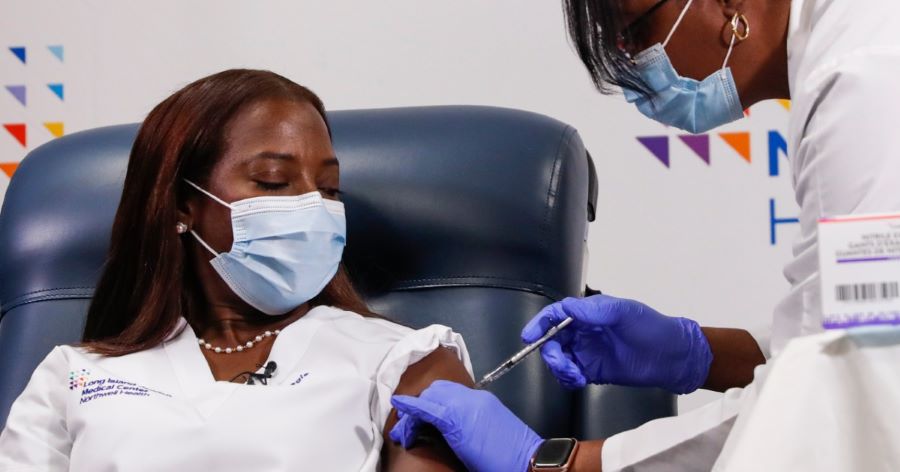BY SEYIFUNMI LUMEKO
Data collected regularly since March 2021 in 20 African countries have revealed that the fear of side effects is the main reason people refuse to take COVID-19 vaccination.
However, the World Health Organization has since refuted the claim, adding that the claims around COVID-19 vaccines were false.
According to them, the fast-spreading misinformation online is hard to measure, adding that the ten organizations and ten African fact-checking groups that make up the Africa Infodemic Response Alliance are working to track and debunk dangerous myths on the pandemic and COVID-19 vaccines.
Data collected regularly since March 2021 in 20 African countries show that false claims around COVID-19 vaccines are by far the most widespread myths around the pandemic and that fear of side effects is the main driver for people’s reluctance to get vaccinated.
African fact-checking organizations say they have debunked over 1300 misleading reports throughout the pandemic. Rabiu AlHassan, the Managing Editor at Ghana Fact, Ghana’s first independent fact-checking platform and a member of the Africa Infodemic Response Alliance, is on the frontlines in the fight to debunk myths and spread facts that save lives.
What are the main drivers of mis-and-disinformation around COVID-19?
Several factors fuel the spread of health mis-and-disinformation in West Africa and in Ghana in particular. People are overwhelmed by the flood of information around COVID-19, and after well over a year of the pandemic they are also tired of it. Yet as we are all still learning about this new virus this can also cause confusion. The trickling in of videos of coronavirus sceptics from western countries also hampers our efforts.
Other factors fuelling the spread of the infodemic are rooted in religious beliefs, while there also seems to be a growing and worrying false sense of security among the public after watching recent European football games with stadiums filled with cheering fans. Yet many European countries have vaccinated high numbers of their people, unlike here in Africa.
Political leaders must be consistent in their commentary on COVID-19 and their observance of the protocols
Another important point that needs mentioning are the occasionally contradictory messages from certain leaders. Some don’t seem to practice what they preach regarding COVID-19 protocols. Much of the misinformation we see is circulating on social media, but even worse is that false claims are thriving offline in closed circles.
Can you share examples of damaging myths that GhanaFact has debunked?
We have debunked wild conspiracy theories around COVID-19 vaccines made by renowned pastors with huge follower bases across West Africa. Also western COVID-19 sceptics are producing videos that are reaching people and gaining traction here. All this contributes to denial that virus exists and can add to vaccine hesitancy.
Another bizarre example is the claim that recipients of the vaccine were injected with microchips and magnets. The initial video on this seems to have been made in Europe. That video then went viral in Ghana and inspired locals to produce their own versions that make similar false claims. Other dangerous falsehoods are related to unproven local remedies and false cures to COVID-19. There seems to be quite widespread confidence in these false remedies and we face the risk of people trying to treat serious symptoms themselves.
What more can we do to help stop the spread of mis-and-disinformation?
We need to reach large sections of the population with credible COVID-19 information in their own local languages and we must do more to reach them offline. It is crucial to work with respected local leaders and opinion leaders to influence these communities.
READ ALSO: Covid-19: Ministry of Health receives 160 medical oxygen cylinders from absa bank Uganda
Political leaders must be consistent in their commentary on COVID-19 and their observance of the protocols if they are to remain credible voices in the fight against the virus. Social media companies must pay equal attention to tackling false information in Africa. They must recognize that false information does even more harm here due to the lower rates of digital and misinformation literacy.
On social media and in chat apps, we can all pause for a second and take a closer look at claims around the pandemic and COVID-19 vaccines. We can check if the information is from reputable sources like the World Health Organization before sharing it with our networks and we can challenge it if it seems spurious


